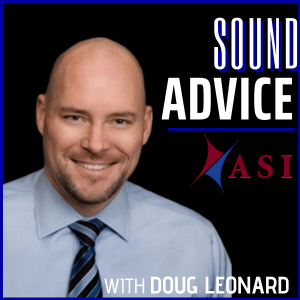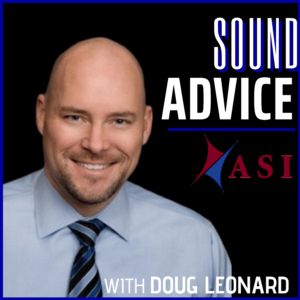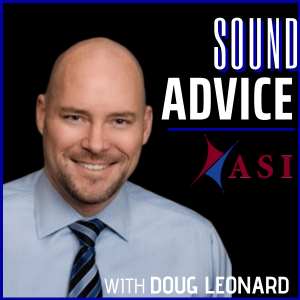In this insightful episode, the conversation delves into the often-overlooked aspect of healthcare: hearing health. Discover why starting early with hearing screenings can pay dividends in maintaining overall well-being as you age. Doug Leonard shares enlightening perspectives on gender-related variations in hearing loss and underscores the universal need for regular hearing evaluations, bolstered by proactive healthcare referrals.
Let's check in with Doug Leonard from ASI, Audiological Services of Iowa, during May, which is Better Hearing Month. Last week, Doug, we talked about the risk factors between hearing loss and dementia and how much greater it is than we even originally thought, with new studies coming out improving that all the time. But let's talk about preventative care as people get older. This is critically important that people pay attention to their hearing at that point, especially.
It is, John. I mean, it's the healthy aging idea that we all want to do. I mean, we're in our 50s, right? I mean, we've got to try to take care of our bodies because what we do now is going to pay off in spades 10 years or 20 years or 30 years down the road. And It's been unfortunate maybe in the last 20 or 30 years since I've started where audiology ranks in healthcare. It's been historically pretty low in the totem pole, not necessarily something that general practitioners will think about with their patients. But I've certainly seen in the last 5 to 10 years a huge uptick in the number of referrals that we get for patients from their primary care providers. Because they're noticing either in communicating with them or maybe the providers have read about that link between untreated hearing loss and cognitive decline and also balance difficulty that comes along with hearing loss. So I think these providers are much more proactive about referring their patients in.
The sooner you start, they realize the better off you're going to be. You don't start working out when you're in your 70s. Maybe if you want great health going forward, you start in your 50s.
Yeah, you've got to you've got to start young for everything. And whether that's protecting our hearing as we're working or recreational activities or as we've started to have some of that decline in hearing, just maybe from birthdays, starting with that diagnostic evaluation. Medicare has a welcome to Medicare program. But, you know, that's typically just some observation and some questions, maybe a whisper test that might happen in the office. You know, it would be nice if it was actually included a diagnostic evaluation. You know, so everybody, when they turn 65, got a baseline. I'm not big on rules and regulations, but that would be a nice feature if it was possible.
Yeah, if you could just do it for yourself. I mean, that's what will benefit in the long run. And we're not talking about just men. We're talking about women, too.
All kinds of hearing loss in both sexes. I mean, you know, it can be age-related hearing loss in men and women. It can be occupational, depending on what a person is doing for their work activities. It can be recreational. It can be tied to other health care issues. You know, diabetes and heart disease are two of the biggest drivers of hearing loss as we get older, too. So... Just encourage everybody, especially, you know, Better Hearing Month during the month of May, to think about their hearing health care. And if they need to, visit with their physician and come in for a diagnostic evaluation.
You heard the line, test your ears at 50 years. It's a great slogan, and it's a great idea for you. That hearing screening is not expensive. It won't take you long, and you'll find out exactly where you are moving forward. So, Doug, what's the number here at ASI so people can give you a call anytime? Yeah, we'd love to hear from them. It's 792-5933. It's Better Hearing Month, a great time to remind yourself to do something for yourself going forward, and that is to get that hearing screening.



